The amount of time without sea-ice is becoming too long for the bears to survive, experts say.
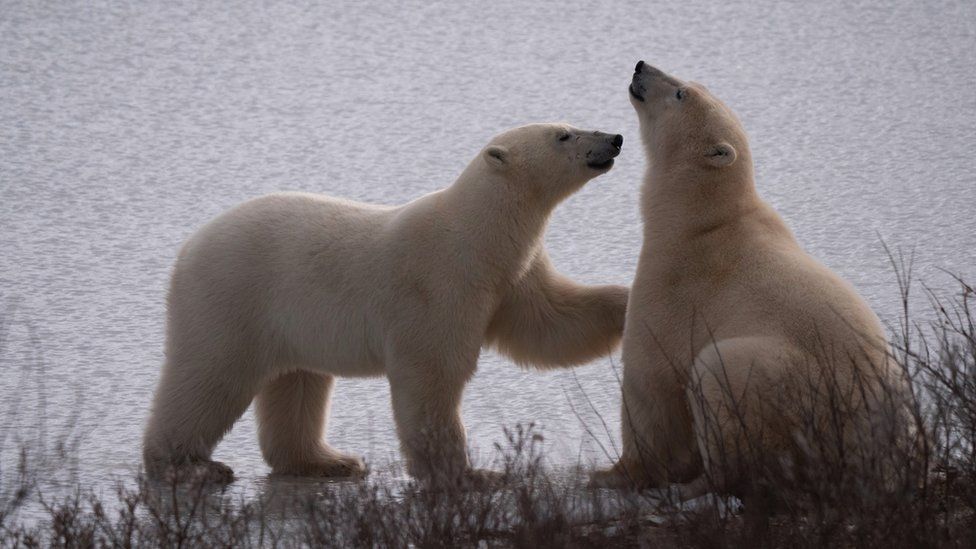 Image source, PBI/BJ Kirschhoffer
Image source, PBI/BJ Kirschhoffer“The bears know the ice will be back soon – they’re waiting,” says Alysa McCall, from Polar Bears International (PBI).
Alysa and her team are in the Canadian Arctic just outside Churchill, Manitoba, in a tundra buggy – an observation lab on tracks, which allows them to watch bears in safety.
Churchill is dubbed the “polar-bear capital” of the world.
Day-to-day life is shaped by the polar bears’ proximity to the town. Residents have bear-proof rubbish bins and the province employs bear-patrol guards to accompany children when they are trick-or-treating at Halloween.
It is common practice for people to leave their parked-car doors unlocked so others have somewhere to run to should they encounter a wandering bear.
In Churchill’s frozen Hudson Bay, bears use the sea-ice as a platform to hunt seals.
But the sea-ice-free season in this part of the Canadian Arctic is lengthening, leaving bears unable to hunt for long periods.
About 2,000km south in Montreal, world ministers are gathering at the UN biodiversity summit in an effort to reach an agreement that will to protect wild spaces and reverse the human-driven loss of nature.
But as the polar bear becomes an icon of climate change, the bears’ plight in Churchill embodies the inextricable link between preserving the natural world and fighting global warming. The polar-bear capital of the world is simply getting too warm for polar bears.
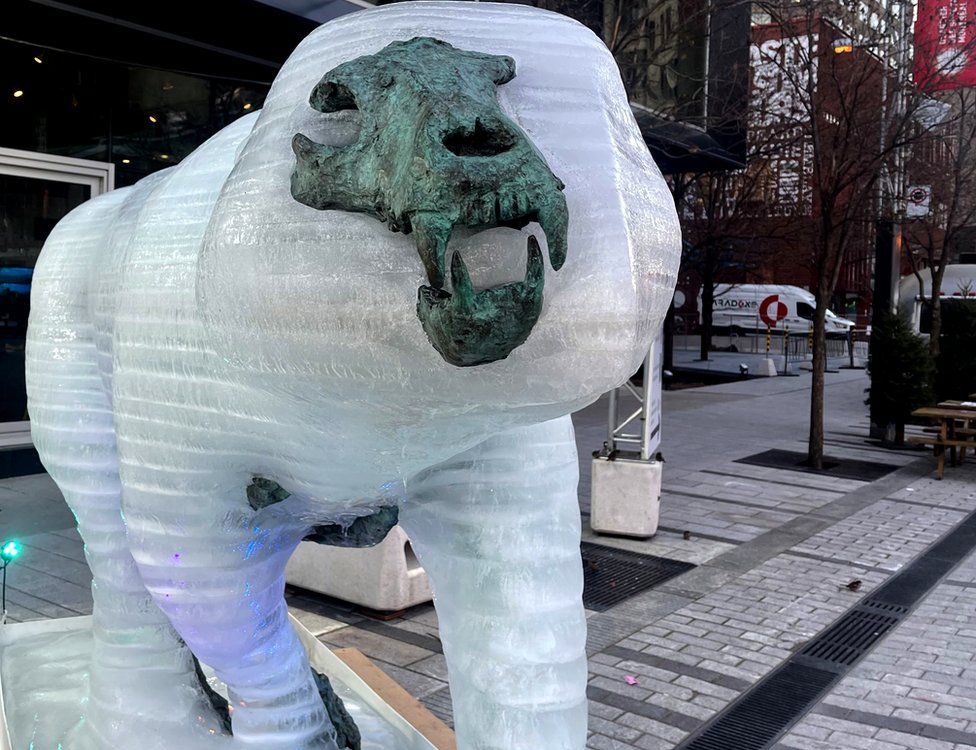
Image source, Victoria Gill
By 2050, conservation scientists now say, the length of the season during which there is no ice could push bears to the point of starvation.
“Looking over the last couple of decades, it forms later and later and it breaks up earlier and earlier in spring,” Dr Flavio Lehner, of conservation charity PBI, says.
“So this season in between – where the bears are on land and can’t take advantage of those hunting opportunities – that’s is getting longer and longer, with warming.”
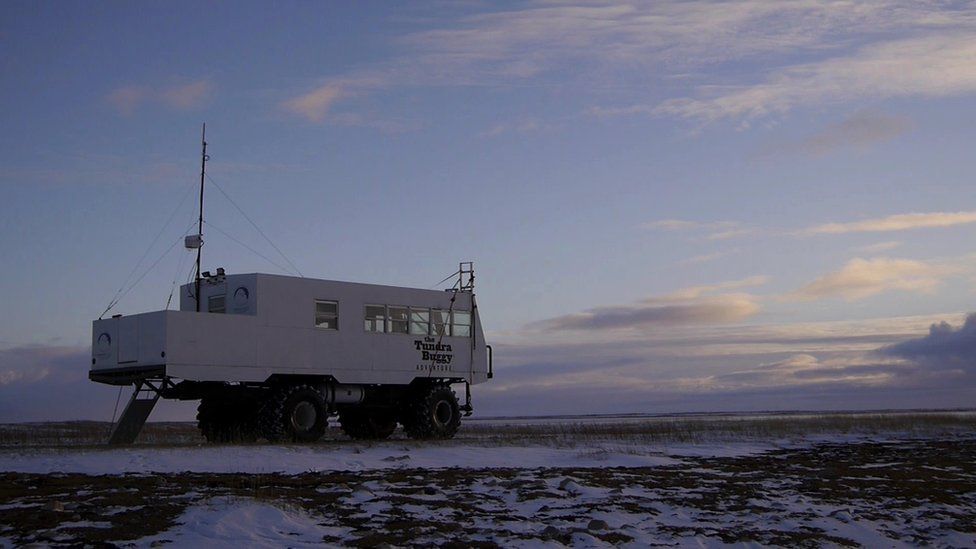
Image source, PBI
Bears depend on the blubber of seals for energy. Mothers raising cubs, in particular, need to consume sufficient fat.
“At 180 days [without sea-ice], we start to see impacts on their reproductive success,” Dr Lehner says. “So beyond that, we’re likely to see declines, simply because they can’t reproduce successfully any more.”
These omnivorous predators will eat just about anything they can find on land, including berries, eggs, small rodents and even reindeer, Ms McCall says, “but nothing replaces that [high fat] seal blubber”.
These changes are bringing bears and humans into closer proximity, making places such as Churchill, where polar bears and people coexist, riskier for both.
A US Geological Survey study, using data from satellite tracking collars on more than 400 polar bears in Alaska, shows the time they spend onshore has grown significantly in recent decades.
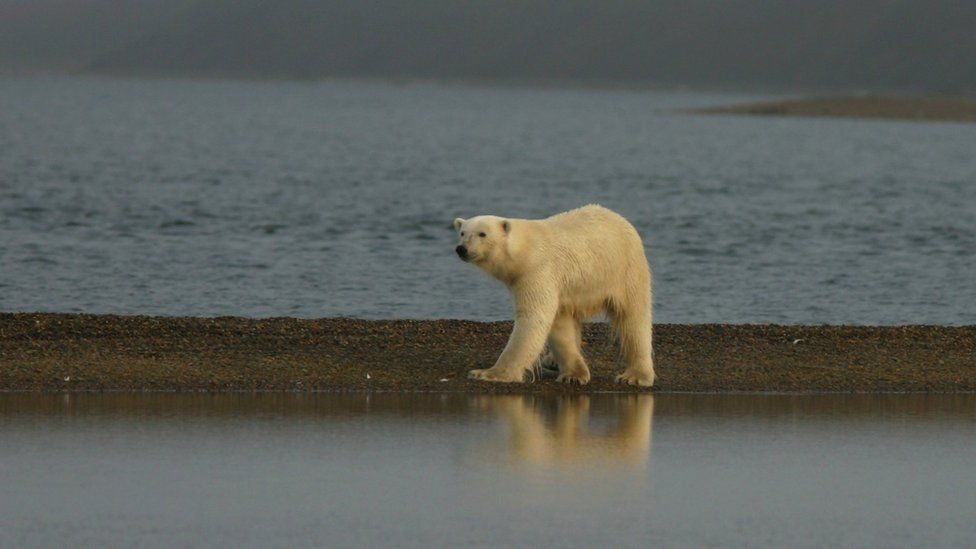
Image source, Susi Miller/USFWS
“Back in the 1980s, polar bears would only spend a couple of weeks onshore each summer,” USGS research wildlife biologist Dr Karyn Rode says.
“Now, many spend nearly two months ashore each year.”
And communities along Alaska’s North Slope have been seeing bears earlier.
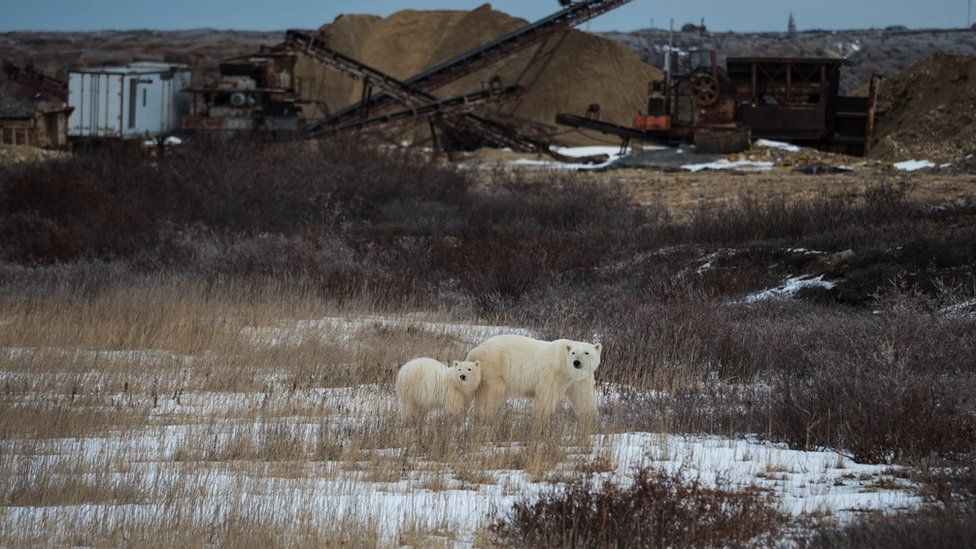
Image source, Madison Stevens/PBI
The fate of Churchill, its seasonal sea-ice and Hudson Bay’s hundreds of polar bears fundamentally depends on what every country in the world does to reduce emissions of the planet-heating gases that are changing this place so rapidly.
“The sea-ice projections are strongly dependent on the temperature – and the temperature is dictated by how much greenhouse gas we emit into the atmosphere,” Dr Lehner says.
“So, from a scientific perspective, there is a beautiful relationship between how much we emit and what that means for the sea-ice and for the bears.”
Ms McCall says the western Hudson Bay subpopulation of bears, which she and her colleagues study, has declined up to 30% in the past 30-40 years, because of less access to sea-ice.
“They are warning us what’s to come for polar bears that live farther north [where icy winters are currently longer],” she adds.
Dr Lehner says climate change has transformed how we need to think about conservation.
“It permeates all life on this planet,” he tells the BBC.
“So something like setting up a national park is not bad, but it’s not going to help if that ecosystem fundamentally changes because of climate change.
“These are not separate issues – if you care about animals, if you care about conservation, you have to care about climate change.”
Hear a special episode of Inside Science from the UN Biodiversity summit in Montreal on BBC Sounds
Follow Victoria on Twitter